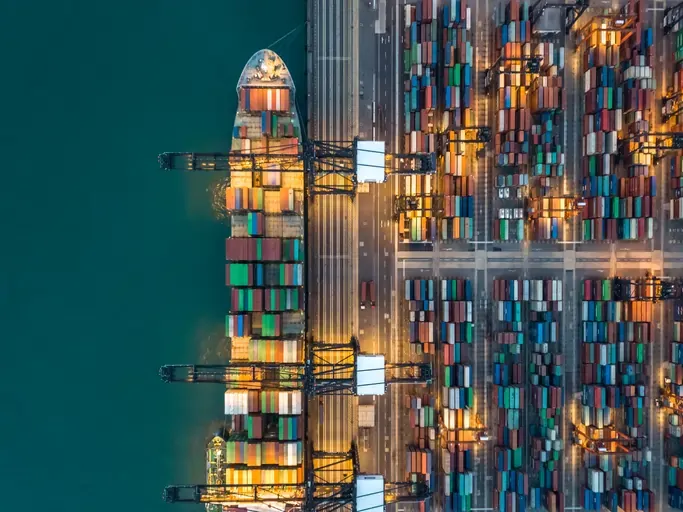
Byline: Celeste Duvall
At a port in Southeast Asia last year, 500 containers sat idle—frozen by a sudden export restriction triggered by a diplomatic flare-up between regional rivals. The shipment delay choked a European automotive plant’s production schedule within days. But the damage wasn’t limited to goods stuck in transit. It rippled—through boardrooms, budgets, and the brittle fibers of global trust.
This is the new face of risk in global commerce: unpredictable, politically charged, and uncomfortably personal.
“We’re seeing a profound change in the nature of disruption,” says Tim Cummins, Founder and President of World Commerce & Contracting (WorldCC). “It’s not just about supply and demand anymore—it’s about sovereignty, data, ethics, and global power shifts. The rules of trade are being rewritten in real time.”
As the geopolitical climate grows more hostile—fueled by trade wars, cyber threats, shifting alliances, and resource nationalism—businesses are scrambling to adapt. But traditional tools like rigid contracts and supplier scorecards are failing under pressure. Instead, WorldCC is betting on a different strategy: Supplier Relationship Management (SRM), recast as a critical skillset for 21st-century commercial resilience.
And they’re teaching it—through a reimagined, global SRM certification program aimed at helping professionals navigate the storm.
Beyond Transactional Thinking
WorldCC’s SRM approach is built on a simple idea: relationships are infrastructure.
When COVID-19 fractured global logistics, companies with strong supplier relationships—rooted in transparency and shared goals—fared better than those who treated suppliers as interchangeable cost centers. That lesson is echoed in Managing Tariffs and Market Uncertainty, a 2024 report by WorldCC and the CCM Institute, which draws on executive roundtables across industries.
The findings are sobering:
- Over 60% of organizations admitted they are “reactive” when faced with geopolitical risk.
- Fewer than 30% had contingency clauses in place for supply chain disruptions.
- Many executives confessed their risk monitoring relied more on “gut feel” than structured analysis.
“There’s a massive capability gap,” says WorldCC CEO Sally Guyer. “You can’t manage what you don’t understand—and most teams don’t understand how fast, or how far, politics can travel through a supply chain.”
That gap is exactly what the SRM certification aims to close.
Learning to Read the Fault Lines
The updated SRM certification—launched with urgency as global tensions escalated—teaches professionals to look past price negotiations and learn to read geopolitical fault lines. Based on Catherine King’s May 2025 blog How SRM Can Help Mitigate Risks in a Geopolitically Charged World, the program identifies several major threats:
- Trade wars and tariffs: Eroding the predictability of global cost structures.
- Resource nationalism: Countries hoarding or restricting exports of critical raw materials.
- Cyber threats: Sabotaging trust and data integrity between suppliers and buyers.
- Shifting alliances: Changing the legality and feasibility of entire trading routes.
WorldCC’s certification offers a comprehensive playbook to navigate these risks—complete with case studies, supplier segmentation models, and tools for monitoring early warning signals.
Professionals are trained to:
- Map geopolitical risk across supply tiers.
- Diversify sourcing through regionalization and nearshoring
- Structure contracts that include force majeure and price escalation clauses.
- Establish open, resilient communications with critical suppliers.
More than knowledge, it cultivates instinct. “It’s about moving from firefighting to future-proofing,” says Guyer.
Shifting the Culture of Contracts
While SRM has existed as a procurement concept for decades, it has rarely been treated as a board-level concern. That’s changing—rapidly.
“We’ve entered an age where supplier relationships are existential,” says Cummins. “They’re no longer background operations—they’re the main stage.”
WorldCC’s position is clear: the role of commercial and contract professionals must evolve from legal custodians to strategic enablers. To do that, they must be empowered with a broader lens—one that combines technical, political, and interpersonal intelligence.
In practice, that means cultivating trust in complex relationships where disruption is the norm, not the exception. It means knowing when to renegotiate, when to escalate, and when to collaborate for mutual survival.
“SRM isn’t just about efficiency—it’s about agility,” Guyer emphasizes. “And that’s the only thing that stands between a delay and a disaster.”
A Global Shift, Accelerating
The certification program is already gaining traction. In just over a year, interest in SRM training has grown by more than 40%, especially among multinationals operating in Asia-Pacific and the Middle East—two of the world’s most geopolitically dynamic regions.
Organizations that complete the program often integrate it into broader resilience strategies. One aerospace supplier used its SRM training to restructure its contract portfolio, proactively negotiating dual-source agreements and data-sharing protocols with high-risk partners. When raw material access was abruptly curtailed during a diplomatic spat in early 2025, the company rerouted supply within 48 hours.
They didn’t panic—they pivoted.
Relationships Are the New Reserves
WorldCC’s SRM program doesn’t offer geopolitical immunity. But in an age of global uncertainty, it does offer something more attainable: informed control.
SRM helps organizations shift from being reactive casualties of global forces to strategic actors who can anticipate, adapt, and even thrive in crisis.
The lesson for global business is clear. Tariffs will rise. Routes will close. Alliances will shift.
But relationships—if nurtured properly—can endure.
And in today’s fractured world, that might be the strongest form of capital there is.


